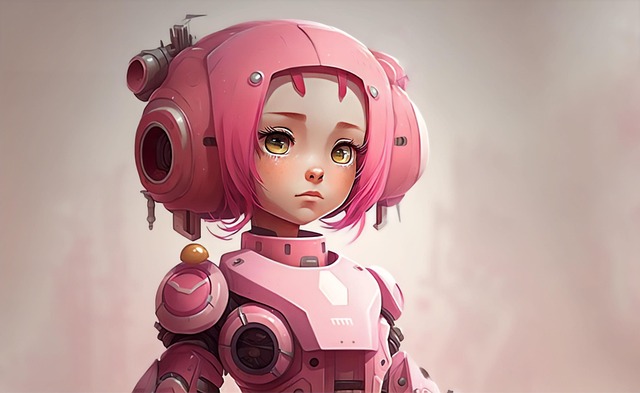# AI in Action: How Intelligent Technologies Are Revolutionizing Everyday Human Experiences
Artificial Intelligence (AI) has transitioned from a theoretical concept to an integral part of our daily lives, influencing how we interact with technology, make decisions, and even understand the world around us. This article delves into the transformative power of AI across various sectors, highlighting its practical applications and the profound changes it is bringing to everyday human experiences.
## Enhancing Communication Through AI
One of the most noticeable impacts of AI can be seen in the realm of communication. Various platforms now utilize AI-driven algorithms to enhance our interactions, making them more efficient and personalized. For instance, chatbots have become ubiquitous in customer service, providing instant responses to inquiries and resolving issues without the need for human intervention. These AI systems analyze user queries and respond with relevant information, significantly reducing wait times and improving customer satisfaction.
Moreover, language translation services powered by AI are breaking down barriers between cultures. Tools like Google Translate leverage deep learning algorithms to provide real-time translations, allowing individuals from different linguistic backgrounds to communicate seamlessly. This capability not only fosters personal connections but also facilitates international business, enabling companies to expand their reach into new markets with ease.
In addition to these advancements, AI is also reshaping social media interactions. Algorithms curate content based on user preferences, ensuring that individuals are exposed to information that resonates with them. This personalization enhances user engagement and fosters a sense of community among like-minded individuals. However, it also raises concerns about information silos and the potential for echo chambers, prompting discussions about the ethical implications of AI in communication.
## Revolutionizing Healthcare with Intelligent Technologies
The healthcare sector has seen some of the most profound applications of AI, where intelligent technologies are revolutionizing patient care and medical research. Machine learning algorithms are being employed to analyze vast amounts of medical data, aiding in the early detection of diseases. For example, AI systems can assess medical imaging, such as X-rays and MRIs, to identify anomalies that may indicate conditions like cancer or cardiovascular diseases, often with greater accuracy than human radiologists.
Furthermore, AI-powered predictive analytics are enhancing patient outcomes by enabling personalized treatment plans. By analyzing a patient’s genetic makeup, lifestyle, and medical history, AI can recommend tailored therapies that are more likely to be effective. This shift towards precision medicine not only improves the quality of care but also optimizes resource allocation within healthcare systems, ultimately leading to better patient satisfaction and reduced costs.
Telemedicine is another area where AI is making significant strides. Virtual health assistants, powered by AI, can triage patients, schedule appointments, and provide medical advice based on symptoms reported by users. This technology is particularly beneficial in rural areas where access to healthcare professionals may be limited. Patients can receive timely consultations without the need for extensive travel, ensuring that healthcare is accessible to all.
## Transforming Daily Life Through Smart Technologies
AI’s influence extends beyond professional sectors and into our everyday lives, where smart technologies are reshaping how we interact with our environments. Smart home devices, such as voice-activated assistants and smart thermostats, are examples of AI applications that enhance convenience and energy efficiency. These systems learn from user behavior, allowing them to anticipate needs and automate tasks, such as adjusting lighting or temperature based on preferences.
Transportation is another domain experiencing a significant transformation due to AI. Self-driving cars, powered by complex algorithms and sensor data, promise to revolutionize how we travel. These vehicles can analyze their surroundings in real-time, making decisions that enhance safety and efficiency on the road. As autonomous vehicles become more prevalent, they have the potential to reduce traffic accidents caused by human error and improve traffic flow in urban areas.
Additionally, AI is playing a crucial role in enhancing our shopping experiences. Retailers are leveraging AI to analyze consumer behavior, enabling them to offer personalized recommendations and targeted promotions. This not only improves customer satisfaction but also drives sales by ensuring that consumers are presented with products that align with their preferences. Furthermore, AI-driven inventory management systems optimize stock levels, reducing waste and ensuring that popular items are always available.
## Conclusion: The Future of AI in Everyday Life
The integration of AI into everyday human experiences is not merely a trend; it represents a fundamental shift in how we interact with technology and each other. As intelligent technologies continue to evolve, their potential to enhance communication, revolutionize healthcare, and transform daily life will only grow. However, it is essential to approach this evolution with caution, considering the ethical implications and potential challenges that accompany widespread AI adoption.
In summary, AI is not just a tool for improving efficiency; it is a catalyst for change that is reshaping our world in profound ways. As we embrace these intelligent technologies, we must also remain vigilant, ensuring that they serve to enhance human experiences rather than diminish them. The future promises exciting possibilities, and with responsible stewardship, AI can lead to a more connected, healthier, and efficient society.











